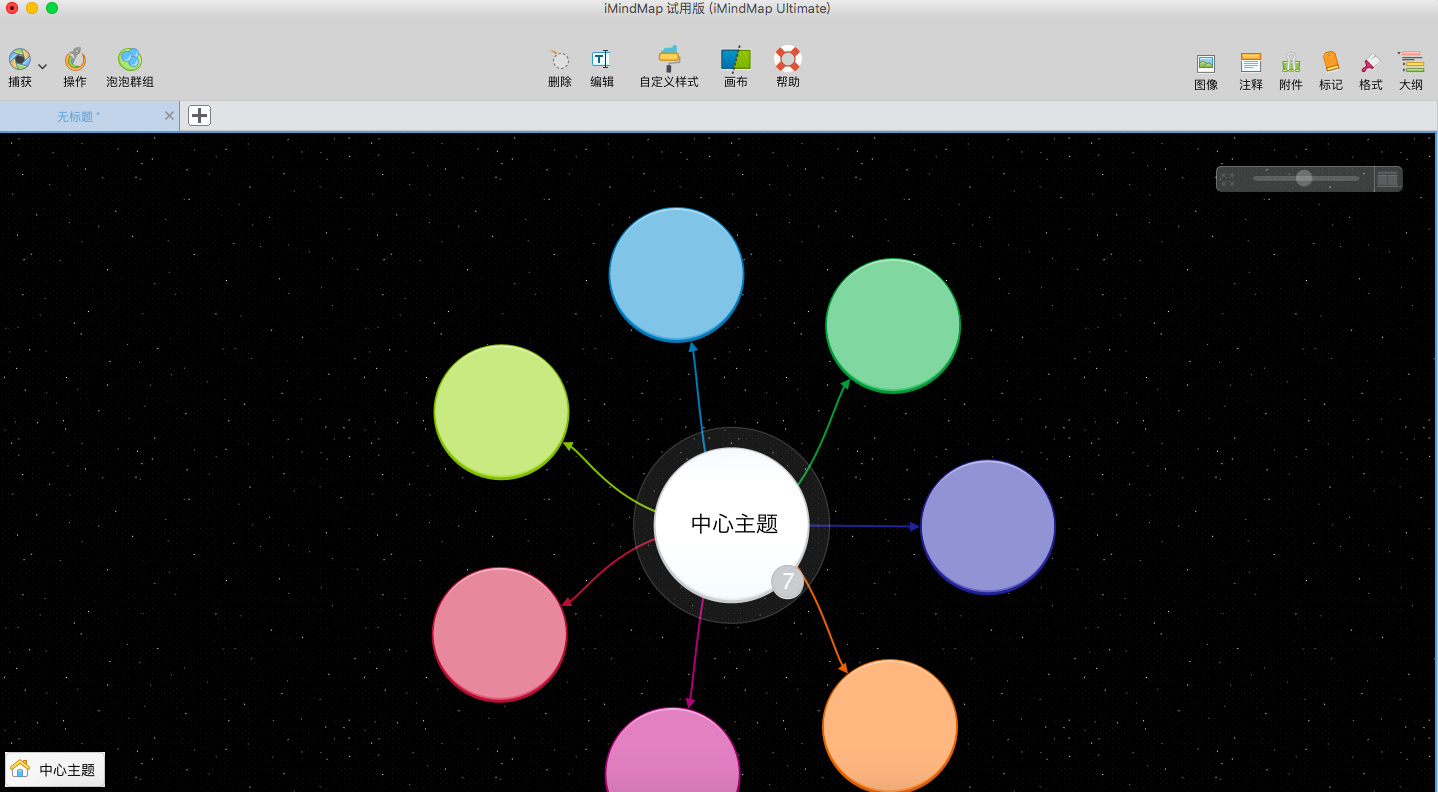iMindMap is a mind mapping software developed by Tony Buzan, the founder of mind mapping. It has free lines and hand-drawing functions. It combines a unique free-form brainstorming view mode and a systematic mind map view mode, which is especially suitable for brainstorming, planning and managing projects, creating presentations, etc.
iMindMap 11 new features:
Mind map view
Turn your biggest ideas into meaningful plans with powerful mind maps. Radiating, colorful branches will build a concise overview of even the most detailed projects. See where your mind map takes you.
Radial map view
Organize your ideas beautifully and provide meaningful information using Radial Map View*. Visually plan projects, simplify data, break down challenges and generate ideas. Display information as easily summarized nodes in a radial graph that is adaptable, hierarchical, and highly visible.
brainstorming view
Organize, categorize and prioritize ideas on unlimited cork boards using our unique free-form brainstorming view. Create a project storyboard or resource center to plan for your greatest success.
Quickly capture a view
Enjoy new ideas with quick snap views. Capture your best ideas in the floating Bubble Web, then seamlessly switch to Bubble Groups* mode to add some color-coded order. Quick Capture View is the launch pad you need to make your best ideas your biggest successes.
Organization chart view
Outline your projects and streamline your workflow with our new organizational chart* structural information. Use organization. Create top-down data chains, workflows or team roles with diagrams and instantly communicate hierarchy and sequence.
Split screen mode
Ability to work between two views simultaneously. Whether you're dragging sticky notes from brainstorming view and converting them into mind map branches, or working on two smart maps at once, it can all be done in split screen.
iMindMap beginner tutorial
The main steps to draw a mind map with iMindMap:
Create a central theme
The central theme is the starting point of a mind map and represents the core of what is to be explored.
The central topic should contain an image representing the topic of the mind map, located in the center of the page. Since our brains respond better to visual stimulation, it is recommended that the center image be eye-catching and evocative.
Whether you draw your mind map by hand or on the computer, it’s wise to take the time to personalize the central theme. This will strengthen the user’s connection to the mind map content.
Create a central topic and add branches
Step 2: Add a branch
The second step to getting your creative juices flowing is to add branches. The main branches follow the central image and they are the key branch topics. In order to make each branch be explored as much as possible, it is also necessary to add subtopics.
The beauty of mind mapping is that you can constantly add new branches without worrying about being limited to only a few options. As more and more ideas are added and the brain is free to absorb new associations from different concepts, the structure of the mind map will become more natural.
Step 3 Add keywords
When adding a branch to your mind map, the most important thing is to enter key ideas. An important principle of mind mapping is to use one word for each branch. Because keeping one word creates greater associations than using multiple words or phrases.
For example, if a branch keyword is "birthday party," maybe people will be limited to all aspects of the party. However, if you simply use the keyword "birthday", the keywords that can be associated and explored will not only be party, but also various different keywords, such as gifts, cakes, etc.
One word per branch also works well for chunking information on core topics. Using keywords to trigger associations in the brain can prompt users to remember large amounts of information. Farrand, Hussain, and Hennessey confirmed in 2002 that medical students who used mind-mapping memory had a 10% increase in long-term memory for real information.
Add different branches and colors of keywords
Step 4: Different branches, different colors
Mind mapping stimulates whole-brain thinking because it brings together a wide range of cortical skills, from logic and numbers to creativity and specificity.
A great example of whole-brain thinking is color coding mind maps. Color coding connects vision and logic, helping the brain create mental shortcuts that help categorize, emphasize, analyze information and identify more previously undiscovered connections.
Color images are more attractive than monochrome images.
Step 5 Add images
Images have the ability to convey more information than a word, a sentence, or even an article. They are processed by the brain and serve as visual stimuli to aid in recalling information. Even better, images are a universal language that can overcome any language barrier.
Essentially, at an early age, we learn to process images. According to Margulies (1991), before children learn language, they associate related concepts by imagining pictures in their minds. To this end, mind maps maximize the potential of powerful imagery.
iMindMap hand-drawn mind mapping software (Mac version) update log:
1.Fix some bugs
2. Optimized some functions
Huajun editor recommends:
A very good iMindMap hand-drawn mind mapping software (Mac version), easy to use and powerful, don’t miss it if you need it. This site also provides Jin Goal, Aimo Brain Map, and .NET for you to download.



































